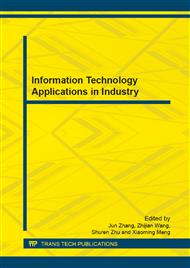p.686
p.691
p.697
p.703
p.709
p.713
p.718
p.723
p.731
Hamiltonian Robust Controller Design of Permanent Magnet Wind Generators
Abstract:
In this paper, the dual-input nonlinear controller of permanent magnet wind generators was designed based on energy dissipation theory and Hamiltonian energy approach. Under the action of the Hamiltonian controller, the closed-loop system is asymptotically stable on case of no disturbances and finite-gain L2 stable in the presence of disturbances. The Hamiltonian energy approach provides us a physical insight and a new way to the controller design of nonlinear systems. The simulation results show the effectiveness of the proposed robust controller.
Info:
Periodical:
Pages:
709-712
Citation:
Online since:
December 2012
Authors:
Price:
Сopyright:
© 2013 Trans Tech Publications Ltd. All Rights Reserved
Share:
Citation:


